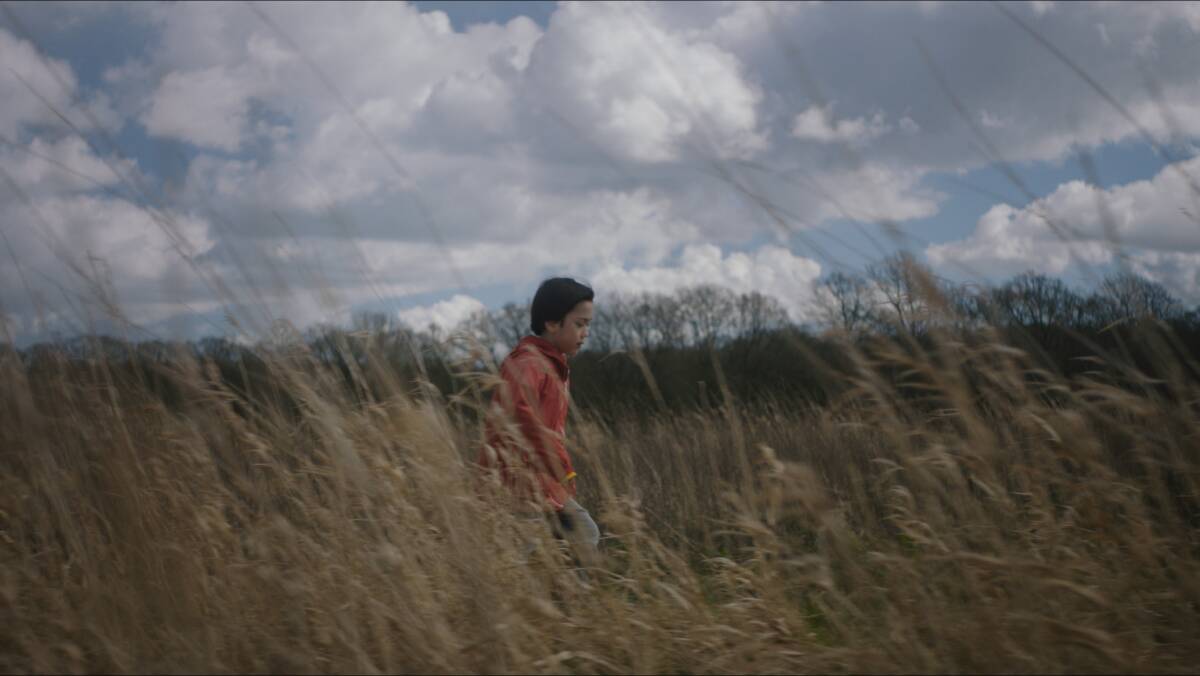The Reason I Jump. M, 82 minutes. 4 stars
"Empathy, empathy, put yourself in the place of me."
My son used to love watching the surprisingly astute cartoon Adventure Time, and I've always remembered that little ditty.
British director Jerry Rothwell takes an empathetic approach in this beautiful documentary film to a group we non-neurodiverse folk find challenging to understand.
In 2007, 13-year-old Naoki Higashida wrote the book The Reason I Jump: One Boy's Voice from the Silence of Autism, a series of questions and answers in which he describes how his brain works and how he sees and exists in the world.

Higashida is a non-verbal neurodiverse young man, and for many his words illuminated the lives of loved ones, of autistic family members unable to express themselves in verbal and other ways we're all familiar and comfortable with.
The novelist David Mitchell and wife Keiko Yoshida translated Higashida's book into English, so moved were they by the connection they felt the book gave them to their autistic son.
Five families from different countries and home environments are the subjects for Rothwell as he explores the inner lives of autistic folk.
In India, young Amrit draws her feelings. Her mother says it was a revelation when she understood that her shut-down and non-verbal daughter had been communicating to her all along, through her doodling and colouring in.
Rothwell jumps throughout the documentary to Higashida's words - not a linear telling of the book, but a selection of ideas that marry up to the stories of his subjects and how they see the world.
"You might see an object as its whole self, but I see one small detail then another and gradually the object comes into focus," Higashida's words say.
Suddenly, Amrit's sketches of lined faces or fabric patterns make sense.
She is taking everything in, starting at the micro level.
In the US, Ben and Emma have maintained a friendship since childhood despite not being able to formally express themselves in written or spoken English like their family members.
As one of their patient and loving mothers explains, their worlds changed when the two found an educator who introduced them to a letter board.
The pair were able to spell out their thoughts, to express themselves and be understood.
In Sierra Leone, a country ruled until fairly recently by superstition, children like happy Jestina were once considered possessed by demons.
Jestina, as with the other young neurodiverse kids in the film, has the support of loving parents who strive to understand their inner lives.
For the film, Rothwell engages a young Japanese boy played by Jim Fujiwara to visually express the words of Higashida.
He runs through fields, the camera sits close to his face as he takes in light and colour and sound, with the book's words overlaid.
Cinematographer Ruben Woodlin Dechamps also tries to give the viewer some visual clues as to how these kids see the word.
Jeremy Dear, documentary producer and producer of this film, allows the camera into his own home, and his partially verbal autistic son Joss is a delightful little ball of joy.
On a walk through their neighbourhood, an electrical substation hums with contained power.
Joss is fascinated.
He tries to climb the fence to get to what he describes as music.
The film's sound engineers dial up the thrum of the substation so we might approximate what Joss is hearing, and he tells his dad it sounds like a vacuum cleaner.
Specifically, a black vacuum cleaner.
The filmmakers throw up a montage of electrical devices that pepper our landscape we often see, but don't notice.
You start thinking about the effect they might have on kids like Joss.
You start thinking empathetically, which is what the producers are going for.

